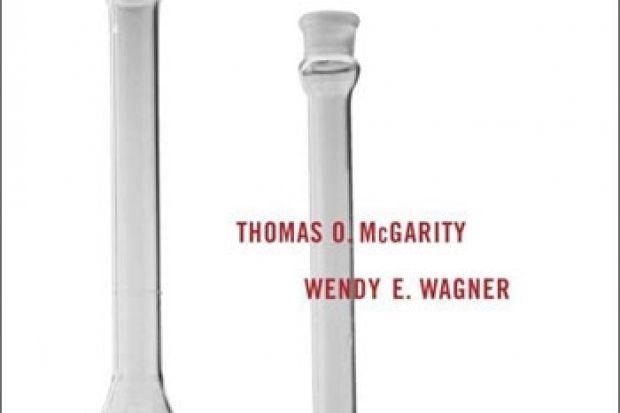Bending Science sets out to describe the manipulation of pharmaceutical, environmental and public-health research by special interest groups. This is a topic worthy of considerable discussion, as the credibility of research of this type has been battered over recent years.
Many studies have documented widespread data manipulation, suppression of negative findings and misleading ghostwritten publications. Raw data have been hidden from the scientific community and sometimes also from scientists who are ostensibly "reporting" those data. The safeguards of science have been circumvented. Powerful academics have been selected (and handsomely remunerated) by industrial "partners" to be "key opinion leaders (KOLs)". These KOLs have served to give tainted science a veneer of university credibility. Less compliant academics have been punished and lawyers have stepped into the void.
The results have been predictable. The scientific literature has become an unreliable guide to rational prescribing. Patients have begun to lose trust in evidence-based medicine. Many have been injured, and thousands have died because they (and their physicians) have been denied accurate information about the properties of drugs and devices.
Thomas McGarity and Wendy Wagner, who are both academic lawyers, have set themselves a difficult task. Several meticulously documented books have set a high standard. These include Wagner's own edited volume written in collaboration with Rena Steinzor (Rescuing Science from Politics, 2006), University Inc. (2006), Science in the Private Interest (2003), The Truth about the Drug Companies (2004) and Doubt Is their Product by epidemiologist David Michaels (2008).
McGarity and Wagner are passionate about their subject. They make a convincing case for the claim that science is under attack, and that this is part of a pattern of abuse. The bibliography and collation of cases provide an invaluable resource. Nevertheless, this volume will prove frustrating to many. The authors frequently get lost in repetitive generalities, and I was not convinced by their attention to detail.
I note two conflicts of interest: I have in the past received funding from pharmaceutical companies. Bending Science includes a reasonable and supportive account of an incident in which I was involved.
The overall picture presented in Bending Science is one of valiant universities, scientists, journals and regulators dealing with commercial spin, distortion and harassment. Everybody is cleared of serious impropriety except for industry bullies and their acolytes.
There is no mention here of the raison d'etre of a university and the role played by senior university administrators in their pursuit of commercial largesse. Nor is there much contemplation of the game that led the system to be organised in the way it is. The collusion of academic leadership and regulators is omitted from most examples. The many dramatic examples of bullying by regulators of their own scientists at the behest of industry are not mentioned.
In McGarity and Wagner's discussion of the iconic Nancy Olivieri case, I found no mention of the medical researcher's firing from the University of Toronto. Indeed, Bending Science's discussion of her case appears to be substantially based on a single source, a book that is currently the subject of a libel action.
Similarly, Bending Science pulls its punches when it comes to the failure by certain other universities to support researchers who had upset industry interests, and the way in which they fired or attempted to fire them.
We are left with a disturbing sense of omission. Sadly, universities, regulators, academic leadership and journals have agreed to play the game of prostituted science. To blame the entire problem on industry is to misrepresent it.
Disappointingly, the authors do not attempt to define what should count as scientific fraud. Many instances described as "bending" represent outright attempts to manipulate the scientific record.
More fundamentally, the book misunderstands the purpose of science itself. Science does not exist to serve the secret needs of the "pipeline that provides the information that governmental institutions rely on to implement and execute the laws". Nor is it there to deliver "policy-relevant information" (cf. the history of eugenics).
Science is about accessibility of data and transparency of method. The purpose of regulation is to act as a conduit for transparency between science-based products and all those, including government, who need to see the evidence. A subject involving inaccessible data and a secret regulatory pipeline is not scientific at all.
Finally, the recommendations for change that are offered by McGarity and Wagner smack of battling one's way through an open doorway. They say that they want new regulations, but many worthy guidelines for the proper conduct of science already exist. If governments and professional bodies really wanted to find and to prosecute scientific fraud, they could easily do so.
Our greatest need is for universities and leaders who are willing to stand up for existing rules and safeguards, rather than for yet more reinvented guidelines and legislation.
Bending Science: How Special Interests Corrupt Public Health Research
By Thomas O. McGarity and Wendy E. Wagner
Harvard University Press 400pp, £29.95
ISBN 9780674028159
Published 23 May 2008
Register to continue
Why register?
- Registration is free and only takes a moment
- Once registered, you can read 3 articles a month
- Sign up for our newsletter
Subscribe
Or subscribe for unlimited access to:
- Unlimited access to news, views, insights & reviews
- Digital editions
- Digital access to THE’s university and college rankings analysis
Already registered or a current subscriber?




